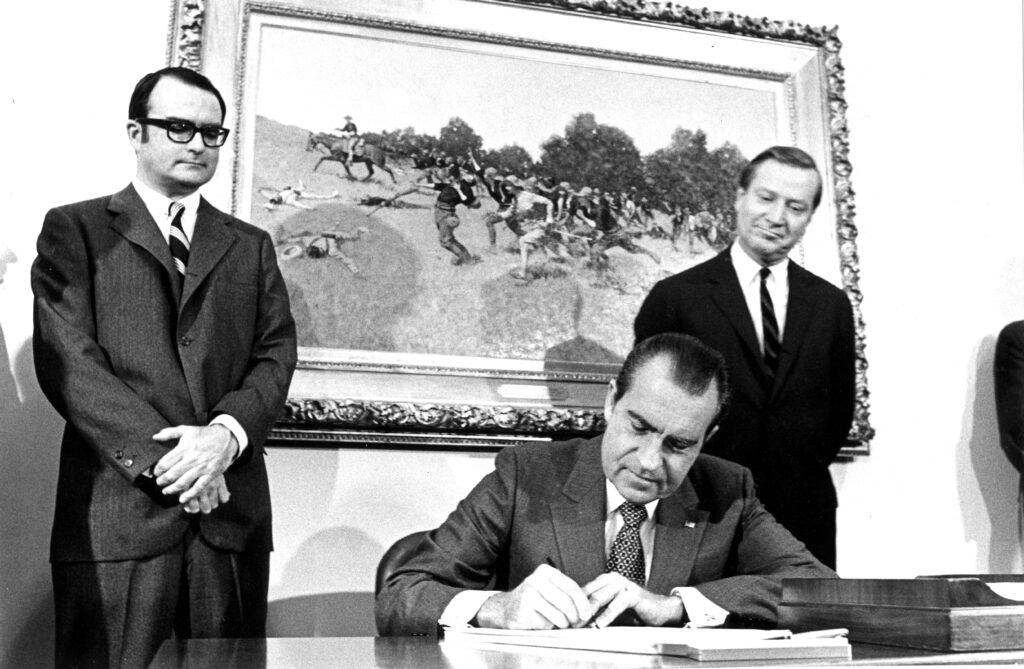Stop EPA from rolling back environmental regulations
September 26, 2025
By William McQuilkin, retired U.S. Navy rear admiral
I remember the first Earth Day in 1970. I read about it in my “Weekly Reader” (a popular educational newspaper for schoolchildren in those days), and discussed it with my teacher. She was the same teacher who advised us not to ride gas-operated mini-bikes as it was harmful to the environment.
It was an exciting time to come of age. Environmental awareness had creeped into the American consciousness. It was a time when a river in Ohio made international news by catching on fire and our cities were experiencing the choking haze of worsening air pollution. People just knew something had to be done about it.

That first Earth Day was universally celebrated by both political parties. It was that same year that then-President Richard Nixon (a Republican) signed the National Environmental Policy Act (NEPA), and established the Environmental Protection Agency (EPA) and the National Oceanic and Atmospheric Administration (NOAA).
It is impossible to talk about that first Earth Day, and what the distinguished author Douglas Brinkley calls the “Silent Spring Revolution” and the “Great Environmental Awakening,” without first mentioning a fearless and courageous woman, Rachel Carson.
Rachel Carson’s watershed book “Silent Spring” was published in 1962 and is often credited as the linchpin to the modern environmental movement. In the book, Carson warns of the dangers of widespread use of DDT and other pesticides. Of course, she was viciously attacked by the chemical industry.
When Nixon created the EPA by executive order in 1970, it was in response to this rising environmentalism and was almost immediately effective in setting about to reduce pollution. State and municipal governments soon followed suit.
These ideas were not radical. They were about protecting the commons, the air that we breathe and the water that we drink. Today, I feel as though the EPA is retreating from these important accomplishments. One step up and two steps back, it would appear.
Last month, the EPA published its repeal of the endangerment finding, which provides the legal underpinning for limiting greenhouse gas emissions from cars and other sources. The EPA administrator said, “Today marks the death of the Green New Scam.” I think we need to be careful about oversimplification and sloganeering.

It was the EPA under the authority of the Clean Air Act, which established standards for limiting the amount of lead in gasoline and other emissions, including carbon monoxide. I remember filling my motorcycle up with leaded gasoline when I was in high school. Leaded gasoline was extremely harmful, especially to children.
Years later, during port calls in developing countries, I could personally witness the harmful effects to people in places that did not have these same protections and regulations. It took decades to phase out the use of leaded gasoline. How long will it take us to recover from misguided actions we might be undertaking today?
I am a sailor, not a scientist, but it just makes sense to protect humanity and all living things on this rapidly warming planet. Undoing the regulatory framework that Nixon put in place in 1970, over a half a century ago, is misguided. Touch gently the earth our children and grandchildren rest upon.
William McQuilkin is a retired U.S. Navy rear admiral and currently resides on his farm in North Central Florida. This opinion piece was originally published by the Orlando Sentinel, which is a media partner of The Invading Sea. Banner photo: Smoke streaming from ta coal-fired power plant in Florida (iStock image).
Sign up for The Invading Sea newsletter by visiting here. To support The Invading Sea, click here to make a donation. If you are interested in submitting an opinion piece to The Invading Sea, email Editor Nathan Crabbe at ncrabbe@fau.edu.
Tags: Clean Air ActEarth Dayendangerment findinggreenhouse gas emissionsRichard NixonSilent SpringU.S. Environmental Protection Agency
Search
RECENT PRESS RELEASES
Related Post



